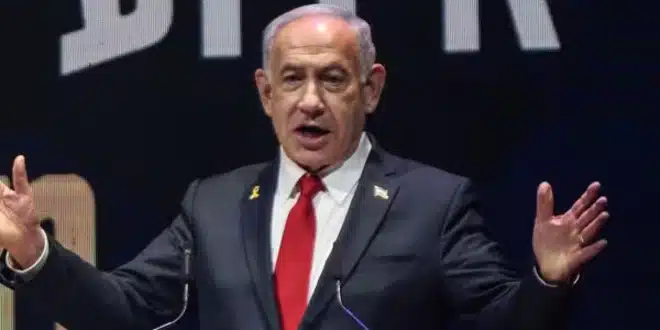Israeli Prime Minister Benjamin Netanyahu has declared that there will be no Palestinian state, doubling down on his government’s commitment to settlement expansion in the occupied West Bank. His comments came as he signed off on the long-disputed E1 project, a plan that has drawn international criticism for decades due to its potential to sever the West Bank into two disconnected territories.
The E1 Settlement Plan
The E1 project envisions the construction of 3,412 housing units over a 12-square-kilometre area linking East Jerusalem to the settlement city of Maale Adumim. Once completed, it could provide homes for as many as 15,000 new residents, significantly expanding Maale Adumim’s current population of around 38,000.
At the signing ceremony, Netanyahu vowed to double the settlement’s population while pledging to defend Israel’s “heritage, land, and security.” He was blunt in rejecting Palestinian statehood, saying: “We are going to fulfil our promise that there will be no Palestinian state; this place belongs to us.”
His remarks echo those of Finance Minister Bezalel Smotrich, who last month endorsed the construction of more than 3,400 new homes in the same area.
International Concerns
The E1 corridor has long been one of the most controversial settlement plans because of its geographic implications. According to the United Nations, development in this zone would effectively divide the West Bank in two, cutting off East Jerusalem from Palestinian communities further east. UN Secretary-General Antonio Guterres has warned that such a move would “sever the territorial continuity of a future Palestinian state,” rendering the two-state solution nearly impossible.
Despite these warnings, Israel’s far-right coalition has pressed forward, citing security needs and historical rights. For Palestinians, however, the project is seen as a clear attempt to entrench permanent control over occupied land.
A Growing International Push for Palestinian Recognition
Netanyahu’s declaration comes just days before the United Nations General Assembly (UNGA) convenes in September, where momentum is building among Western nations to formally recognise the State of Palestine.
Last month, French President Emmanuel Macron announced that France will recognise Palestinian statehood at the UNGA. In a letter to Palestinian Authority President Mahmoud Abbas, Macron urged an end to the war in Gaza and reiterated calls for a ceasefire, humanitarian access, and a political process that includes disarming Hamas while laying foundations for Palestinian sovereignty.
France’s decision has triggered a domino effect among other Western allies. Australia, Canada, and Malta have since confirmed they will also recognise Palestine, while New Zealand has expressed its intention to follow suit. Together, these moves mark a significant shift in diplomatic positioning, especially as Netanyahu continues to reject any form of Palestinian statehood.
What This Means
Netanyahu’s hardline stance underscores the widening gap between Israel’s current government and much of the international community. While Israel pursues expansion in the West Bank, countries once cautious about Palestinian recognition are now openly backing statehood as a pathway to peace.
The clash between these positions raises profound questions about the future of the conflict: can there be any credible path to a negotiated two-state solution if one side rules it out completely? For now, Israel appears determined to press forward with settlement growth, while global recognition of Palestine gains momentum—deepening the divide at a pivotal moment in Middle East diplomacy.


